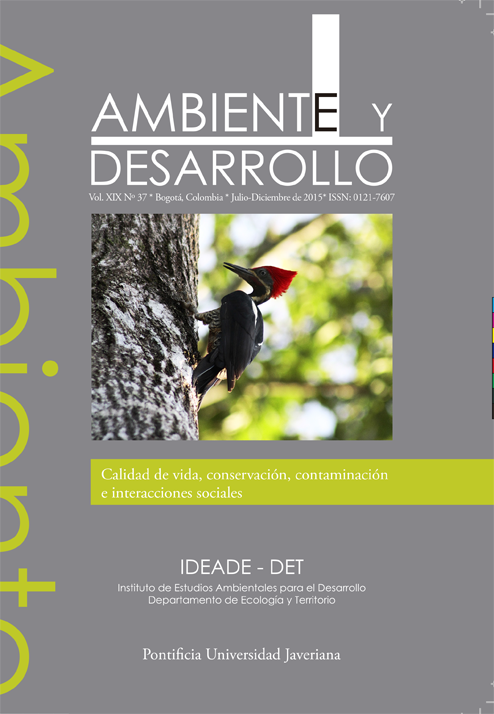Abstract
Las especies vegetales subvaloradas son plantas marginalmente aprovechadas, aunque presentan nutrientes esenciales valiosos. El occidente cercano antioqueño se caracteriza por el crecimiento del turismo, que ha desplazado a la producción de frutales tropicales tradicionales y con ello amenaza el conocimiento local sobre su uso y manejo. Este trabajo evaluó la diversidad de plantas con potencial de integración al turismo y describió los usos y el manejo dados por la población. Se registraron 78 especies, de las cuales el 32 % reunieron las características de ser nativas, tradicionales y aceptadas por el turismo. Las especies más promisorias fueron zapote, tamarindo, corozo, iraca y algarrobo. La alta diversidad de especies y el conocimiento tradicional deben conservarse, a través de propuestas de turismo con identidad cultural.Ambiente y Desarrollo is registered under a Creative Commons Attribution 4.0 International Public License. Thus, this work may be reproduced, distributed, and publicly shared in digital format, as long as the names of the authors and Pontificia Universidad Javeriana are acknowledged. Others are allowed to quote, adapt, transform, auto-archive, republish, and create based on this material, for any purpose (even commercial ones), provided the authorship is duly acknowledged, a link to the original work is provided, and it is specified if changes have been made. Pontificia Universidad Javeriana does not hold the rights of published works and the authors are solely responsible for the contents of their works; they keep the moral, intellectual, privacy, and publicity rights.
Approving the intervention of the work (review, copy-editing, translation, layout) and the following outreach, are granted through an use license and not through an assignment of rights. This means the journal and Pontificia Universidad Javeriana cannot be held responsible for any ethical malpractice by the authors. As a consequence of the protection granted by the use license, the journal is not required to publish recantations or modify information already published, unless the errata stems from the editorial management process. Publishing contents in this journal does not generate royalties for contributors.


